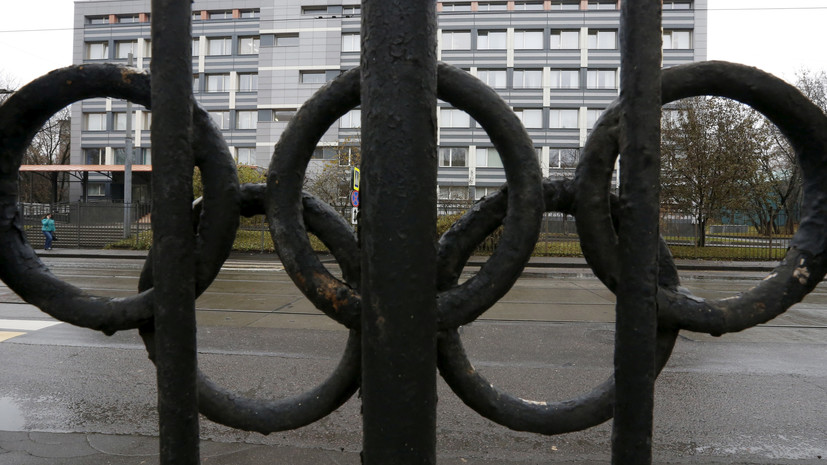On December 9, the Executive Committee of the World Anti-Doping Agency (WADA) at a meeting in Lausanne unanimously deprived the Russian Anti-Doping Agency (RUSADA) of compliance status for a period of four years. The reason for this was the conclusions of the WADA Compliance Committee, which accused RUSADA of falsifying the database of the Moscow anti-doping laboratory, transferred in January this year, and violating the terms of the agency’s restoration last September.
The re-disqualification of RUSADA will lead to serious consequences for all Russian sports, which are provided for by the International Standard for Compliance with the Code of Signatories - one of the main legal documents of WADA. It was signed and required to comply with WADA, the International Olympic Committee, international sports federations in Olympic sports and other sports organizations.
The WADA Executive Committee has adopted sanctions against Russia recommended by the Compliance Committee. Athletes are forbidden for four years to represent Russia in the so-called "major competitions", which include the Olympic Games, Paralympic Games, Youth Olympic Games and world championships, organized by signatories of the International Standard.
Athletes will be able to perform, but under neutral status, without demonstrating the Russian flag and performing the anthem if they win. The exception is the Winter Youth Olympic Games in Lausanne, which will be held in January, since there is too little time left before they start, and the WADA decision will not have time to enter into force.
To participate in the competition it will be necessary to pass an additional check by WADA. Athletes will not be allowed if they are mentioned in Richard McLaren’s report, if they were manipulated with doping samples, or if their positive results were entered into the database of the Moscow anti-doping laboratory, and if they did not pass full competitive and out-of-competition doping tests before participating in each specific competition.
The chairman of the compliance committee, Jonathan Taylor, noted that as a result of a thorough investigation, WADA revealed the names of all suspicious athletes whose doping tests were manipulated or their data was removed from the base of the Moscow anti-doping laboratory. The total number of athletes whom WADA has already classified as particularly suspicious exceeds 145. Taylor noted that about a third of them continue to perform and they will be prohibited from participating in competitions.
In fact, the situation that arose before the 2018 Winter Olympics in Pyeongchang was repeated for Russian athletes, which athletes had already got used to. Only certain athletes selected by WADA will be allowed to participate, and they will not represent Russia. WADA insisted that the name of a neutral team should not contain the word “Russia” in general, as it was in Pyeongchang, when the IOC allowed a team called “Olympic athletes from Russia”. At the same time, European Championships and other competitions such as World Cups, not mentioned by WADA, do not apply to these requirements.
At a WADA press conference, Taylor separately described the mechanism for the participation of the Russian national team in the 2022 World Cup in Qatar. If the team passes the selection, then it will be able to apply for participation in the final tournament in neutral status. At the same time, football players, as Taylor noted, should not represent Russia.
Russia is also forbidden to host major competitions or qualify for their holding. Sports federations should cancel the already planned tournaments and transfer them to other countries, if this is possible legally and practically. In addition, Russia is forbidden to fight for the right to host the Summer Olympic and Paralympic Games in 2032, although their choice is planned after four years of WADA sanctions.
It is separately mentioned that representatives of the Russian government cannot be included in the leadership of the organizations that have signed the standard, or attend the main competitions in any way. The same applies to the president, general manager, members of the executive committee or governing body of the Russian Olympic Committee and the Russian Paralympic Committee.
Finally, RUSADA must pay a fine of 10% of its income or $ 100 thousand and pay WADA expenses incurred in connection with the scandal after January 2019.
RUSADA has 21 days to decide on WADA or reject it. In case of disagreement, the case will be examined by the Court of Arbitration for Sport (CAS) in Lausanne and its verdict will be final. From the moment the CAS makes a decision, the four-year suspension period, if it is recognized as legitimate, will begin its report. This can happen at any time, and if CAS closes the case after the Tokyo Olympics, then the WADA decision will affect the next Olympics in Paris. On December 19, the RUSADA Supervisory Board will decide whether to accept WADA terms or appeal to CAS.
At the same time, as a result of the meeting of the WADA Executive Committee, the effectiveness of RUSADA in the fight against doping in Russia was recognized. In the next four years, as before, they are not going to conduct detailed monitoring of the organization, as it was before. One of the conditions for the restoration of RUSADA is that the agency will remain independent and avoid external interference in its activities.

